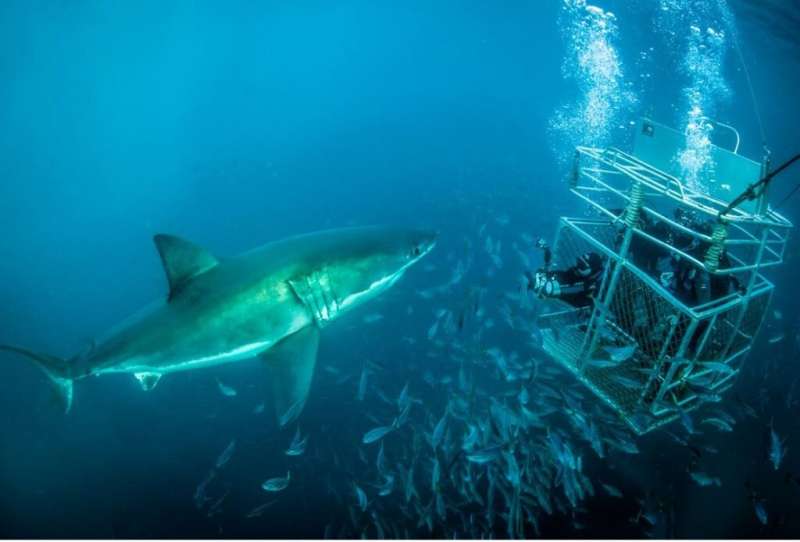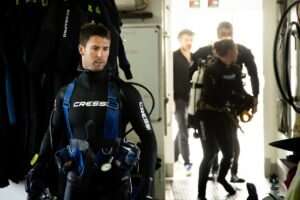This article has been reviewed according to Science X's editorial process and policies. Editors have highlighted the following attributes while ensuring the content's credibility:
fact-checked
peer-reviewed publication
trusted source
proofread
Research supports South Australia cage shark-diving

New research published in Marine Policy has highlighted the successful management of white shark cage-diving in South Australia.
Neptune Islands, off the Eyre Peninsula, remains one of the few places in the world and the only place in Australia to offer shark cage-diving.
South Australia's White Shark Tour Licensing Policy sets rules and guidelines to ensure white shark tourism at Neptune Islands continues to be environmentally sustainable and socially responsible.
The Department of Environment and Water works closely with tour operators and research partners at Flinders University to ensure that policies and management of white shark tours is evidence-based.
The effect of white shark cage-diving tourism on shark residency has been tracked using 20 years of data collected by tour operators, and eight years of scientific monitoring and research.
Professor Charlie Huveneers, Director of Flinders University Marine and Coastal Research Consortium and leader of the Southern Shark Ecology Group, says the assessment is based on research and monitoring at the Neptune Islands near Port Lincoln, where shark residency increased in the late 2000s at the same time as a rise in cage-diving activity.
"The monitoring program and adaptable management framework were implemented to measure the success of the new rules put in place," he says.
"White shark residency has returned and remained at baseline levels since 2013 showing that adequate regulations and good industry practices can minimize impacts on white sharks and ensure long-term sustainable wildlife tourism."

The area is now an international focal point for white shark research and is raising awareness about white sharks and their conservation.
The two shark cage-diving tour businesses operating at Neptune Islands—Rodney Fox Shark Expeditions and Calypso Star Charters—are integral to the research, providing valuable data and logistical support to help inform how the sharks are responding to the activity.
Deputy Premier and Minister for Climate, Environment and Water Susan Close says the State Government is committed to ongoing research to continually improve understanding of the effect of white shark tourism on the sharks themselves.
"These businesses and their commitment to sustainable management of shark cage-diving have established Port Lincoln and the Eyre Peninsula as the premier destination for this activity," she says.
"Thanks to this partnership, the shark cage diving industry continues to prosper in South Australia as it fast becomes the global gold standard for this activity.
"White shark cage diving is a unique eco-tourism experience where you can get up close and personal with the largest predatory fish on the planet."
Research and monitoring is continuing, with an additional operating day in the fortnightly tour schedule coming into effect in February 2023.
The article, "Multi-year effects of wildlife tourism on shark residency and implications for management," is published in Marine Policy.
More information: Yuri Niella et al, Multi-year effects of wildlife tourism on shark residency and implications for management, Marine Policy (2022). DOI: 10.1016/j.marpol.2022.105362
Journal information: Marine Policy
Provided by Flinders University





















